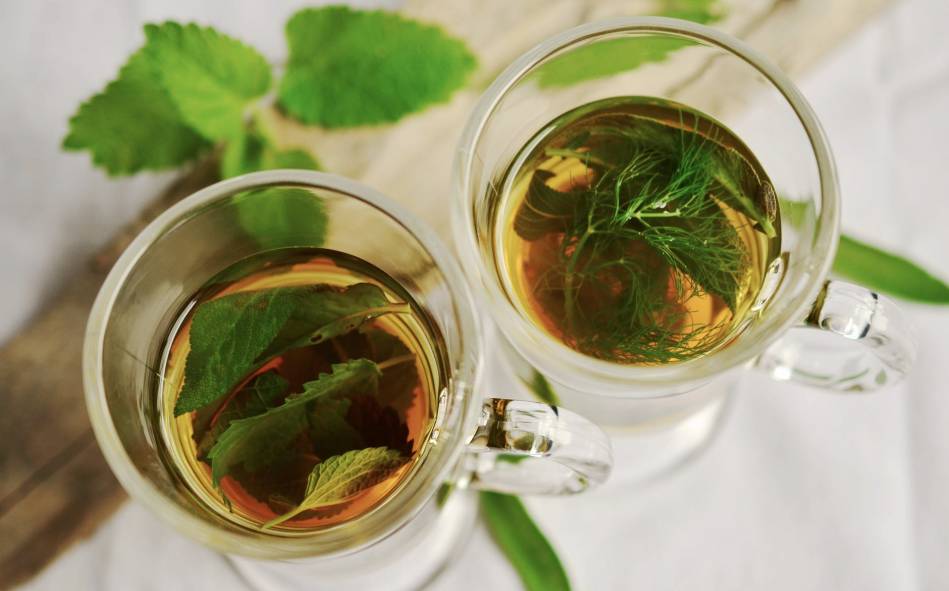
Boost your immune system with vitamins and natural substances

Your immune system is the main defense system of your body which stops foreign substances and cells that try to make you sick by entering your body. Our skin is a part of the immune system as well; however, it is a complex system of cells, tissues and organs. If you are on an unbalanced diet and your body lacks valuable nutrients, the result thereof is a weak immune system so you will be less resistant to diseases. Let’s just think of the flu season during winter. Stress and being in a rush are harmful as well, but let’s take a look at what you have to pay attention to and how you can easily support your immune system.
Why is it important to boost your immune system?
Why is it important to support the normal function of our immune system? You certainly know that one of the most important things to preserve your health and protect and boost your immune system is to have a proper diet that is rich in vitamins and minerals.
| The main function of your immune system is to protect your body from pathogens such as viruses and bacteria and to get rid of abnormal cells produced in your body. |
If our immune system receives proper nutrients, its activity enhances and your body will be more resistant to infections and diseases.
Your immune system fights off the followings on a daily basis:
-
Bacterial infections
-
Viral infections, flu
-
Inflammation of the intestinal tract
-
Stress
-
Environmental harms, toxins.
If you regularly suffer from fatigue or if you are often stressed, it may be caused by the dysfunction of your immune system. If our immunity – our protection – is weakened, fewer white blood cells are produced and they cannot fight toxic proliferating cells which may form a tumour later.

When is a little boost needed?
-
During a pandemic – such as COVID-19 – to help your immune system to fight against coronavirus.
-
If you often suffer from recurring diseases such as sinusitis and pneumonia that is the obvious sign thereof.
-
If you are on a specific diet – whether it is for the purposes of losing weight or you have some dietary restrictions due to a disease. If you wish to get shredded, you consume less fruit and more meat and foods that are rich in protein. Your immune system is often weakened at such times and you will be prone to respiratory tract infections. In case of a diet, the supplement of vitamins and minerals are of high importance in order to preserve the balance and to prevent the acidification caused by high protein intake.
-
The overactivity of the immune system may also be a sign of a dysfunctional immune system: allergic reactions like skin sensitisation, hay fever, asthma, some intestine diseases, drug and food allergy.
-
In case of a weakened immune system after a surgery, it is also important to consume vegetables, fruits and vitamins.
The most important vitamins for your immune system
The most important vitamins that boost your immune system are – among others – vitamin B, C, D, E and selenium – which has an antioxidant effect and enhances the efficiency of the immune system. It is often asked whether vitamins shall be taken on a daily basis. Basically, our body has a certain need in order to preserve its health. This should be ensured daily, mainly in case of water-soluble vitamins. The optimal way is ensuring it via food, however, if it cannot be achieved that way, it shall be ensured via vitamins.
Vitamin C
It protects the cells, reduces inflammations, and helps to prevent the common cold. Vitamin C is a really strong antioxidant as well, it protects the cells from free radicals and infections, and it helps to prevent hearth diseases and tumours. It also enhances the effect of vitamin B and E. It is contained in raw vegetables and fruits such as tomato, paprika, broccoli, citruses and green leafy vegetables. A minimum of 500 mg is essential for prevention.
Balanced vitamin C level or in other words, continuous and sufficient vitamin C intake contributes to normal immune functions and a healthy immune system. If viruses reach the mucosa membrane, vitamin C activates in different ways. It helps the formation of white blood cells, neutralize free radicals and helps the recovery of our bodies’ antioxidants. It means that vitamin C contributes to the reduction of oxidative stress, too. If we have a cold, our vitamin C level may decrease radically due to increased use.
Vitamin D
Studies show that vitamin D deficiency is in connection with enhanced autoimmunitiy and being prone to infections. It plays a role in preserving the health of bones, it reduces inflammations and in accordance with the latest studies, it is in relation to diabetes and obesity. It is produced in our skin as a result of sunshine but codfish, tuna and the cod liver oil contains it as well. The recommended dosage is 2000 IU.
According to new findings patients with vitamin D deficiency are more exposed to viruses than those who have an optimal level of vitamin D. During a pandemic we spend more time at home and due to the lack of sunlight our body produces less vitamin D, so if we don’t supplement it, its level may decrease.
|
Vitamin D not only strengthens our immune system, but fights against inflammations, too. Recent studies recommend to pay attention to optimal vitamin D intake in case of a flu or cold. |
Vitamin B
Different types of vitamin B increase our body’s resistance to bacterial diseases. Besides, they contribute to normal cognitive functions and digestion, too. Main sources of vitamin B are egg, liver, whole grains, fish, yeast and vegetables.
Vitamin B not only helps to maintain and strengthen our immune system, but it seems these types of vitamins may prevent or decrease the symptoms of COVID-19, too. Undernourishment (refers to the lack of high-quality food, which are needed to maintain normal functions of the body) can cause inflammation. For this reason, a healthy and balanced diet with a proper vitamin intake is fundamental to proper immune functions. Vitamin B supports adequate immune response with controlling proinflammatory cytokines and helps to overcome hampered respiration and digestive disorders, which may shorten the length of a hospital stay.
Pantothenic acid or vitamin B5 plays an important role in transduction, the maintenance of normal skin and hair and the formation of certain vitamins. It is essential for the production of transduction materials and hormones produced by adrenal glands. It is often called as ‘stress-relieving’ vitamin. Its recommended daily intake is 25-50 mg, but in certain cases 100 mg can be consumed as well, for example in a stressful period which may lead to a weakened immune system.
Omega-3
It has been proven earlier Omega 3 strengthens the immune system, because it reduces systematic inflammation. It means our immune system can fight against viruses effectively.
|
Omega 3 helps to fight against free radicals and decrease the reproductive ability of cells and/or viruses. |
High Omega 3 intake has an effect on B cells, which play an important role in fighting against inflammations. B cells are essential to produce antibodies, stimulate antimicrobial peptides and produce cytokines, which are the main part of the immune system. Besides, Omega 3 is crucial for young people and elderly as well to avoid cold and influenza. Many studies prove that high Omega 3 intake decreases the possibility of a cold turning into pneumonia and the possibility to have pneumonia later.
Zinc
Zinc is recommended to avoid as well as to treat a cold or a flu. Among those who supplemented their zinc intake, the number of cold cases were lower and among those who had a cold, length of the illness was shorter, and they had milder symptoms. Zinc defends nasal mucosa from viruses and limit their reproduction and growth. It decreases inflammation and blocks the growth of the nasal mucosa, which means it helps breathing, too.
Vitamin E
It has an antioxidant and immune booster effect, it protects the body on a cellular level by getting attached to oxygen molecules and thereby preventing them from transforming into peroxide which is a really strong free radical. It is essential for normal cellular activity and it reduces the risk of heart diseases. The best sources of vitamin E are wheat germ, egg, walnut, liver, olive oil and other types of nuts, seeds.

MULTIVITAMIN PRODUCTS OF BIOTECHUSA
|
It is worthy to consume multivitamin products in order to take in a large part of the essential vitamins for the body by consuming only one product. |
.ONE A DAY
This is a basic multivitamin formula with 12 types of vitamins and 10 types of minerals. It contains vitamin A, C, E, D and B. It can be consumed above the age of 12.
.MULTIVITAMIN FOR WOMEN
The vitamins and minerals essential for a woman’s body can be ensured by 2 tablets daily. It contains 7 types of antioxidants and thereby it helps the immune system and effectively helps to preserve healthy hair and skin.
.MULTIVITAMIN FOR MEN
It is a complex multivitamin formula especially for men with amino acids, extracts of fruits and vegetables such as bitter orange, wheat grass, parsley and cranberry. 12 types of vitamins, 10 types of minerals, 14 types of antioxidants and 5 types of amino acids can be taken in via 2 tablets daily.
.DAILY PACK
A professionally selected multivitamin collection which contains multivitamin and multimineral tablets, vitamin C tablets, calcium-magnesium capsules, Q10 capsules, grape seed capsules and fish oil capsules. It is compiled of higher content of active substances for those who live an especially active life and professional athletes.
.VITAMIN C 1000 BIOFLAVONOIDS
Besides ascorbic acid, Vitamin C 1000 Bioflavonoids contains rosehip, lemon peel and elderflower which are excellent sources of vitamin C. 1 tablet per day is recommended to preserve your health, however, in case of a weakened immune system, smoking or if you are in need of a higher intake of vitamin C, such dosage may be increased.
.SPIRULINA
Alga is one of the most popular foods of Asian people. It contains 4000 types of active substances, it is an excellent antioxidant, immune booster, it is great in case of iron deficiency and it is employed in case of people suffering from allergy. The substance named phyocycanin helps to process histamine. Its recommended dosage is 4 tablets twice a day.
.VITAMIN E
Vitamin E is one of the best antioxidants which helps to protect cells from oxidative stress but it is essential for athletes for the regeneration of muscles and it has an anti-aging effect. One soft gelatine capsule contains 200 mg vitamin E which is an easily processable formula.
Well, you should keep the following in mind: if you do not like being ill and paying visits to the doctor or if you would like to avoid all kinds of inflammations and allergies, you always should pay attention to the health of your immune system and nurture it with proper vitamins and extra minerals!
Natural immune boosters
Boosting our immune system can be enhanced by our daily meals and spices as well. Let’s see a few examples.
Ginger
Ginger is common in ayurvedic therapy and its daily consumption is the foundation of a strong immune system. Its roots and its essential oil helps the resistance of the body, it is anti-inflammatory and antimicrobial. It is great against respiratory tract infections and cold but it also enhances digestion. It purifies the lymphatic system and helps to prevent the accumulation of toxins and it cleans the body therefrom. It can be served in the form of tea but it is great for main courses and drinks as well.
Oregano
Its medicinal properties and immune boosting effect is due to its essential oil, high flavonoid and tannin content. Due to its main active substances, thymol and carvacrol, it is antibacterial and it can be used to treat respiratory tract infections and gastrointestinal infections. Moreover, it is recommended to consume in order to avoid fungal diseases, viruses and parasites. It can be used as a spice or in the form of aromatherapy.
Ginseng
By using the stem, leaves and roots of the ginseng, the body’s resistance to diseases and infections can be enhanced. It helps the function of our immune system by producing its effect on immune cells (B and T cells, macrophages, etc.). According to several researches, when 200 mg of ginseng was employed, fewer cases of cold were experienced and ginseng turned out to be efficient in preventing the flu.
Echinacea
Purple coneflower is one of the most researched plants. Its biggest advantage has been experienced in case of recurring infections. A study conducted in 2012 showed that those who consumed Echinacea were less ill in case of a cold. It stimulates the immune system, especially in case of acute upper respiratory tract infections. In order to exploit its effect, the recommended daily intake of dried leaves is 1 g.
Elderberry
Medicine has been using elderberry and elderflower since thousands of ages to cure cold, flu and infections. It was published in the Journal of International Medical Research that in cases where elderberry was employed within 48 hours after the illness occurred, the duration of the flu was reduced significantly, by 4 days. The recommended daily intake is 2-3 servings of elderberry tea which shall be brewed of 10 g of leaves or 2 tablespoons of flowers.
Garlic
Its primary active substance is allicin which is effective against bacteria and viruses. Usually 1 clove is recommended per day and as an additional effect, the chance of colon and stomach cancer is significantly reduced.
Tea
According to a study conducted at Harvard University, it has been found that the body of those who drank 5 cups of black tea per day for two weeks produced ten times more anti-viral interferon. This effect is due to the L-theanine amino acid which can be found in green and black tea as well.

How does exercising help your immune system?
Besides your diet, regular exercise is also a significant factor in preserving your health. Spend a lot of time in the fresh air! Live an active life and do sports regularly! If possible, choose such form of exercise that makes you sweat more since sweating helps your body to remove toxins. During workouts the amount of bactericide and antiviral macrophage cells rises in the vascular system thereby producing its immune boosting effect. In addition, sport is a really good way to handle stress and get energized.